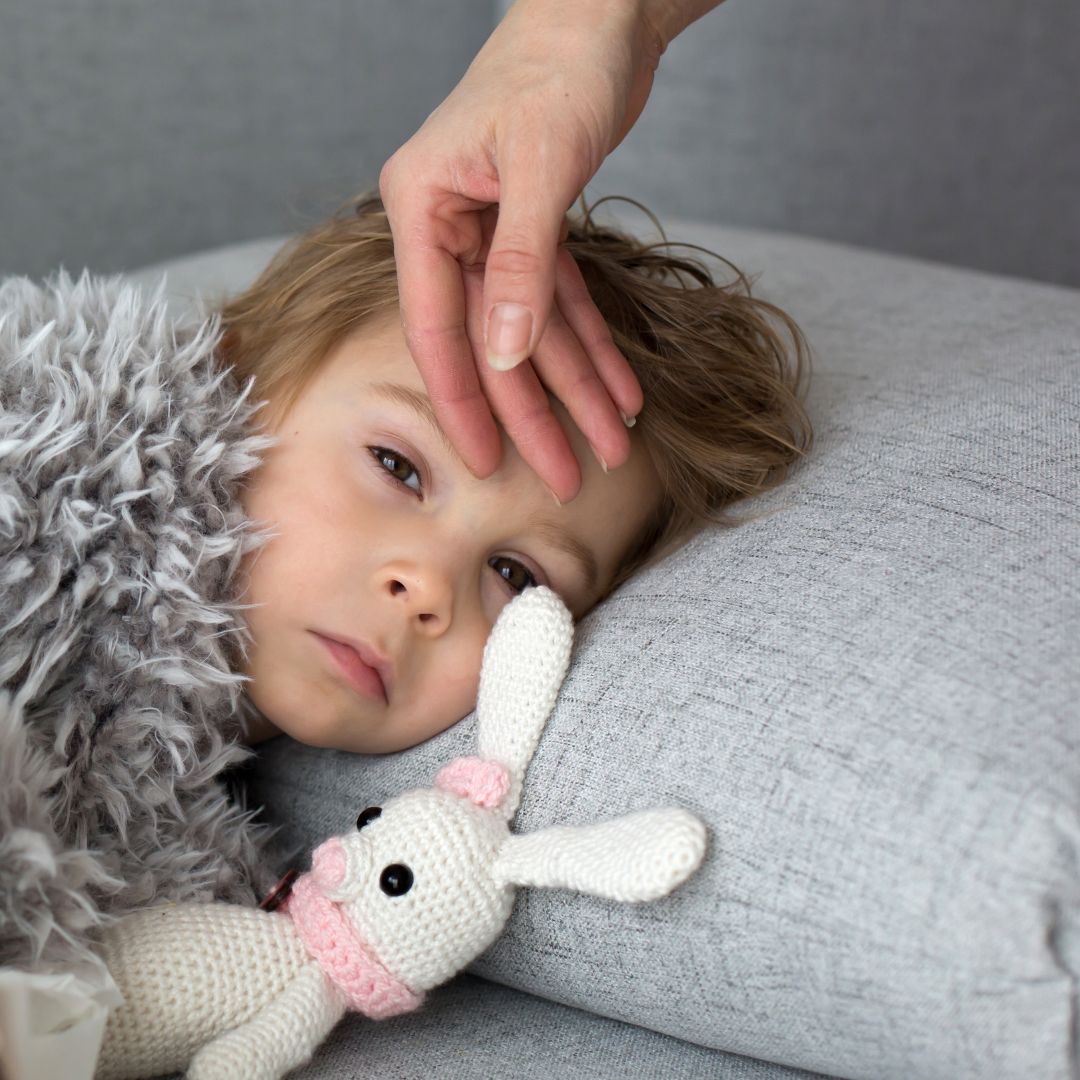By Dr. Peter Klapper Ph.D.
Colds are a common occurrence in little ones, so much so that most children will have six to eight colds a year along with cold symptoms of a runny or stuffy nose, sneezing, coughing, a sore throat, mild fever, fatigue, and watery eyes.
While there are more than 200 viruses that cause common cold symptoms, most colds are caused by rhinoviruses. This is why it’s important to be able to distinguish common cold symptoms and be able to tell the difference between symptoms of the flu, RSV, or another respiratory issue and have an effective care plan to help alleviate symptoms, prevent complications, and minimize the spread of viruses.
In this blog post we will help you with just that by providing “5 Tips to Help Your Child Navigate a Cold and Cough.”
1. Create A Comfortable Environment
When your child is sick, there is no doubt that they are experiencing a new level of fatigue. To support your child's recovery, prioritize a comfortable environment by providing ample rest and sleep. Establish a cozy space with their preferred blankets and pillows which promotes relaxation and aids in effective physical recovery.
2. Hydration is Key
Hydration may be one of the most important elements in helping your child recover from an illness and can help soothe a sore throat. Ensure your sick child stays hydrated by offering water, electrolyte solutions, clear broths, and warm liquids such as tea with honey regularly. You may also consider popsicles or ice chips if your child is reluctant to drink fluids.
3. Natural Remedies
When your child is sick, we understand trying everything in the book to help your child feel better. If your child is congested, try placing a humidifier in their room and consider using honey as a cough suppressant for children over one year old. You may also consider incorporating saline nasal drops into their treatment plan to alleviate symptoms.
Also, if you are looking for a natural common cold treatment, consider our cold and cough remedy for kids. It quickly relieves children’s common cold symptoms of runny, stuffy nose, cough, congestion, mucus, fever, and sore throat without toxic chemicals. Plus, it is easy to use, tastes great, and can be added to orange juice if needed.
4. Balance Nutrition
While hydrating is a huge part of recovery, so is what you eat. Support your child’s recovery from a cold by opting for nutrient-dense foods including fruits, vegetables, lean proteins, and healthy fats. It’s important to incorporate vitamin C-rich foods, warm soups, protein sources like chicken to help boost the immune system, and include foods such as garlic and ginger for their antimicrobial properties.
5. Consult a Pediatrician
If your child’s symptoms continue to worsen, it’s best to consult a pediatrician. Especially if their common cold symptoms are a high fever, difficulty breathing, or signs of dehydration. You should also seek out medical attention for severe coughs, ear pain or discharge, and concerns about over-the-counter medications. For infants under three months old, any signs of illness should prompt immediate consultation, and if your child has pre-existing health conditions, it's crucial to consult the pediatrician to prevent potential complications.
In providing timely and effective care for children during cold and cough seasons, parents play a crucial role in ensuring their well-being. Establishing a comfortable environment, promoting hydration, and incorporating natural remedies can aid in a quicker recovery.


